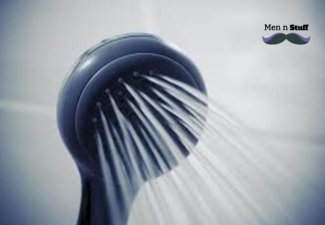Yes, on average, hair grows about half an inch (1.25 cm) per month. However, growth rates can vary due to factors like genetics, age, and health. This 0.5-inch estimate is a general guideline, but individual experiences may differ.
How Faster Does Hair Grow, and What is the Logic Behind It?
Hair is made up of cells called keratinocytes. These cells divide and grow, pushing the old cells out of the follicle.
The hair’s growth phase is called anagen and lasts between two and six years. This is followed by a resting phase (telogen) lasting about three months, during which the hair follicle shrinks and the old cells are pushed out.
Finally, there is a shedding phase (exogen) in which the new cells emerge, and the old ones are shed. A new anagen phase begins, starting the process all over again.

A lot of factors can influence how fast your hair will grow:
- Stress can slow down how quickly your body produces oil, which nourishes the scalp and maintains healthy hair.
- Illness can affect how well you sleep.
- Poor nutrition can lead to nutrient deficiencies that make your body less able to produce collagen and keratin – both important for maintaining healthy hair.
- Physical trauma such as chemical burns or chronic pulling on your locks might interrupt its natural cycles altogether.
What Are the Factors Behind Hair Growth?
Hair growth is influenced by a variety of factors, ranging from genetics to lifestyle choices. Here are the key factors that play a role in determining how fast and healthy your hair grows:
- Genetics: Genetic factors largely dictate your hair’s growth rate, texture, and potential for thickness. If your family has a history of slow or fast hair growth, you’re likely to experience a similar pattern.
- Age: Hair growth tends to be faster during youth and slows down as you age. In general, hair growth is most rapid during your late teens to early twenties.
- Hormones: Hormones, such as androgens and estrogen, impact hair growth. Androgens like testosterone can cause hair follicles to shrink, leading to slower growth and eventual hair thinning in conditions like male and female pattern baldness.
- Nutrition: A balanced diet rich in essential nutrients like protein, vitamins (especially B vitamins), and minerals (zinc, iron, and biotin) is crucial for healthy hair growth. Protein, for instance, is the building block of hair cells.
- Health: Underlying health conditions, such as thyroid disorders or certain autoimmune diseases, can affect hair growth. Adequate sleep, exercise, and stress management also contribute to overall hair health.
- Blood Circulation: Good blood circulation supplies nutrients and oxygen to hair follicles, promoting growth. Scalp massages and regular exercise can improve circulation to the scalp.
- Hair Care Practices: Overuse of heat styling tools, chemical treatments, and harsh hair products can damage the hair shaft and hinder growth. Gentle care and the use of suitable products are essential.
- Hydration: Proper hydration supports hair health by preventing dryness and brittleness. Drink adequate water and use moisturizing hair products.
- Hair Growth Cycles: Hair goes through three phases: anagen (growth), catagen (transitional), and telogen (resting). The duration of each phase determines hair length. The anagen phase, where growth occurs, can last anywhere from two to six years.
- Environmental Factors: Exposure to UV rays, pollutants, and harsh weather conditions can stress hair and impact growth. Protect your hair from these factors whenever possible.
- Medications: Some medications, including certain chemotherapy drugs and medications for specific health conditions, can cause hair loss or affect growth rates.
- Lifestyle Choices: Smoking, excessive alcohol consumption, and a poor diet can negatively impact hair growth. Making healthy lifestyle choices can positively influence hair health.
Understanding How Much to Expect in Your Hair Growth Rate per Month
If you’ve ever wondered how much hair you can expect to grow in a month, the answer is around half an inch. This isn’t an exact number, as everyone’s hair growth rate will differ, but it’s an excellent general guideline.
Factors such as age and genetics significantly affect your hair growth rate, and this number may vary depending on what style of haircut you have and how often you trim your ends.

Can Food Influence the Growth of Hair?
Can what you eat influence the growth of your hair? Let’s take explore the science behind it.
Hair consists of a protein called keratin. So, it stands to reason that eating protein-rich foods can help promote hair growth. Foods like fish, chicken, eggs, and nuts are excellent protein sources.
B vitamins are also essential for healthy hair growth. Foods like leafy greens, beans, and whole grains are all excellent sources of B vitamins.
Omega-3 fatty acids can also help promote hair growth. Foods like salmon, mackerel, and sardines are all excellent sources of omega-3 fatty acids. What about fruits and vegetables? Eating fruit or vegetable salads with crunchy items like apples, celery, cucumbers, or carrots stimulates blood flow to your scalp, which helps hair grow.
Eating watermelon is especially helpful as this tasty fruit contains lycopene which has been shown to increase blood flow to the scalp. It’s important not only what you put into your body but also how often you do so.
Does Your Scalp Influence Hair Growth Rate?
There’s no one answer to whether or not your scalp influences hair growth, as there are many factors at play. However, some experts believe a healthy scalp is necessary for optimal hair growth. This means that if you have a scalping condition, it could potentially impact the rate at which your hair grows.
A few potential conditions that might impact hair growth include dandruff, dry scalp, and other conditions like seborrheic dermatitis and psoriasis. The common cause of hair loss is poor nutrition, so ensure you’re eating well and taking care of yourself in general!
What to Avoid to Promote Hair Growth
To promote hair growth and maintain healthy locks, there are several things you should avoid:
- Excessive Heat Styling: Overuse of hairdryers, straighteners, and curling irons can damage the hair shaft, leading to breakage and slower growth. Use heat styling tools sparingly and always use heat protectant products.
- Tight Hairstyles: Constantly wearing tight hairstyles like braids, ponytails, and buns can cause stress on the hair follicles and lead to hair breakage. Opt for looser styles whenever possible.
- Harsh Chemical Treatments: Regular use of harsh chemicals like relaxers, perms, and excessive hair dye can weaken and damage hair. If using these treatments, ensure proper care and intervals between applications.
- Poor Diet: A lack of essential nutrients, especially protein, vitamins, and minerals, can impede hair growth. Avoid diets that lack these nutrients and opt for a well-balanced, nutrient-rich diet.
- Stress: Chronic stress can disrupt hormonal balance, potentially leading to hair thinning and loss. Practice stress-reduction techniques like meditation, yoga, or deep breathing.
- Smoking: Smoking restricts blood flow, reducing oxygen and nutrient supply to hair follicles. Quitting smoking can improve overall hair health.
- Overwashing: Washing hair too frequently can strip it of natural oils, causing dryness and brittleness. Aim to wash your hair every few days or as needed, using a mild shampoo.
- Aggressive Brushing: Vigorous brushing or combing, especially when hair is wet, can lead to breakage and damage. Use a wide-toothed comb or a gentle brush, and start from the ends, working your way up.
- Ignoring Scalp Health: A healthy scalp supports hair growth. Avoid using harsh shampoos, and gently exfoliate the scalp occasionally to remove buildup and stimulate circulation.
- Skipping Trims: While it might seem counterintuitive, regular trims actually help prevent split ends and breakage, promoting healthier growth.
- Lack of Hydration: Dehydration can make hair dry and brittle. Drink sufficient water throughout the day to keep both your body and hair hydrated.
- Using Incorrect Hair Products: Using products not suited to your hair type can lead to issues like excessive dryness or oiliness. Choose products tailored to your specific needs.
- Not Protecting Hair from the Elements: UV rays, pollutants, and harsh weather conditions can stress the hair. Use protective measures such as hats or scarves when exposed to these elements.
- Ignoring Underlying Health Issues: Certain health conditions can cause hair loss or slow growth. If you notice significant changes in your hair, consult a medical professional to rule out underlying issues.
How to Achieve Healthier, Stronger, and Longer Hair
If you’re looking for healthier, stronger, and longer hair, you can do a few things to help achieve these goals.
- Eat a healthy diet full of essential nutrients for hair health like protein, omega-3 fatty acids, iron, and zinc.
- Use gentle haircare products that won’t strip your hair of its natural oils.
- Avoid heat styling to prevent damage.
- Get regular trims to eradicate split ends and promote healthy growth.
- Use deep conditioning treatments regularly to hydrate and repair your hair.
- When outdoors, shield your hair from the sun with hats or scarves.
- Massage the scalp frequently to stimulate blood flow and promote healthy growth.

The Science of Vitamins and Hair Growth
It’s no secret that vitamins play an essential role in our overall health, but did you know that they can also play a role in hair growth? Vitamin A helps to produce sebum, which is the natural oil that keeps our scalp healthy and our hair looking shiny.
Vitamin B promotes cell growth and aids in the production of keratin, the protein that makes up our hair. Vitamin C is an excellent ingredient for collagen production, which helps strengthen our hair. Vitamin D is thought to help with hair loss, while vitamin E provides antioxidant protection against damage from free radicals.
With all these benefits, it’s no wonder some experts recommend taking a daily multivitamin to increase your intake of these essential nutrients!
Can You Speed Up Hair Growth?
While hair growth is largely determined by genetics, there are numerous ways, backed by science, that may aid in promoting faster hair growth. Here is a listicle detailing the strategies for speeding up hair growth:
1. Maintain a Balanced Diet
A well-rounded diet plays a crucial role in enhancing hair growth. Nutrients like proteins, vitamins A, C, and E, omega-3 fatty acids, and zinc contribute to the production of hair protein – keratin.
2. Regular Scalp Massages
Studies reveal that stimulating the scalp through regular massages can help promote hair growth. This process enhances blood flow to hair follicles, delivering the necessary nutrients for growth.
3. Stay Hydrated
Hydration is an essential factor benefiting all aspects of health, including hair. Dehydration halts hair growth, so drinking a sufficient amount of water daily can encourage its progression.
4. Limit Heat Styling
High heat can cause damage and breakage to hair follicles. By reducing the frequency of heat styling tools, you’re protecting your hair from potential damage and promoting growth.
Trim Regularly
Although it may seem counterproductive, regular trims can help your hair grow faster. By eliminating split ends, it prevents further breakage and damage that could limit growth.
6. Minimize Chemical Treatments
Chemical treatments like hair color or perms can damage the hair shaft and lead to hair loss, thereby limiting hair growth.
7. Adequate Sleep and Reduced Stress Levels
Both sleep and stress are significant factors affecting hair health. Lack of sleep and high-stress levels may lead to disruptions in hair growth, with potential hair fall.
Conclusion
So, is it true that hair grows half an inch a month? The short answer is yes, but some factors can affect how fast or slow your hair grows. While the average person’s hair grows at this rate, there will always be outliers. So, if you’re concerned about your hair growth, talk to your doctor or dermatologist for their professional opinion.
Frequently Asked Questions about Hair Growth
Can Hair Grow More Than Half an Inch Per Month?
No, hair cannot grow more than half an inch per month. The average hair growth rate is six inches per year or half an inch per month. While people can experience temporary spurts of rapid hair growth, this is usually due to hormonal changes and will not last long.
Several factors affect the rate of hair growth, including age, health, diet, and genetics. Hair also slows down with time, so as we get older, our hair may not be growing as quickly. Women who have been pregnant may notice their hair has grown thicker because pregnancy hormones increase circulation to the scalp and stimulate follicle production.
What is the Maximum Hair Growth in One Month?
Although the average person’s hair grows about half an inch per month, this number can vary depending on numerous factors, such as age, health, and diet. Maximum hair growth occurs when all of these factors work in unison.
Unfortunately, there are no guarantees for hair growth, and everyone’s results will differ. However, following simple tips can encourage your hair to grow at its fullest potential.
Reference 1: https://www.zmescience.com/other/feature-post/how-fast-hair-grows-042394/
Reference 2: https://www.medicalnewstoday.com/articles/326764

